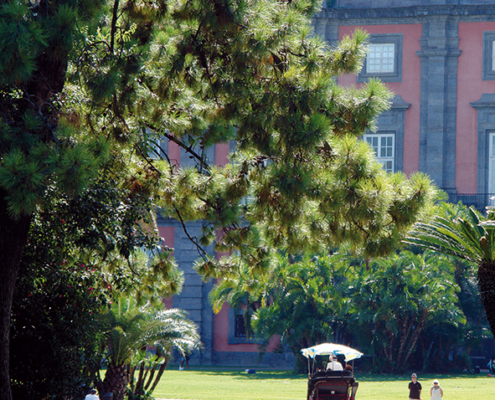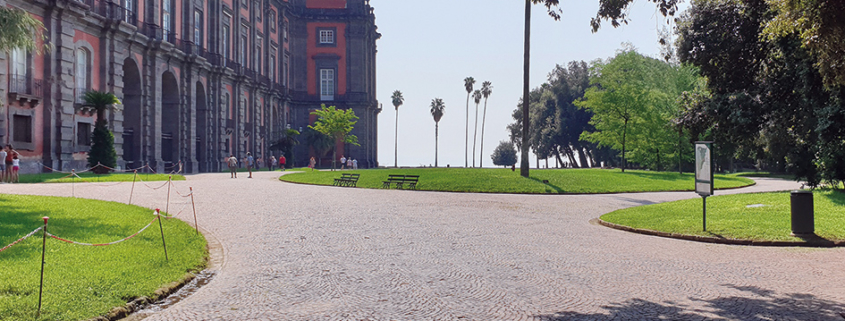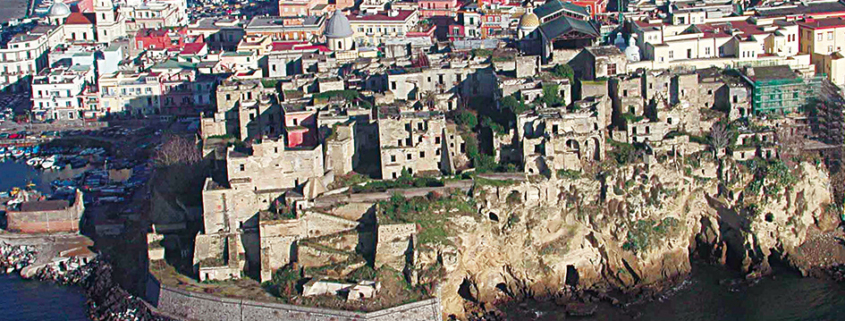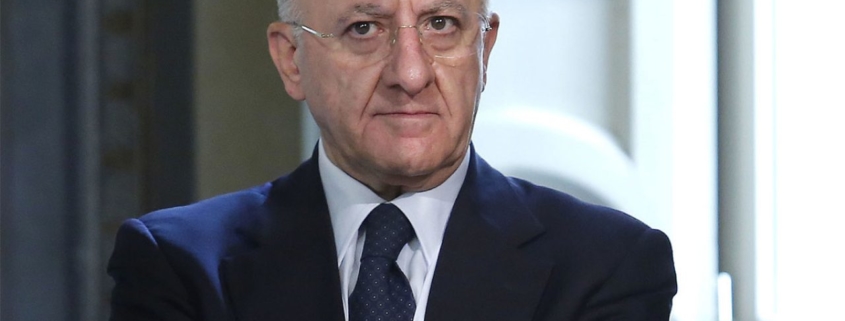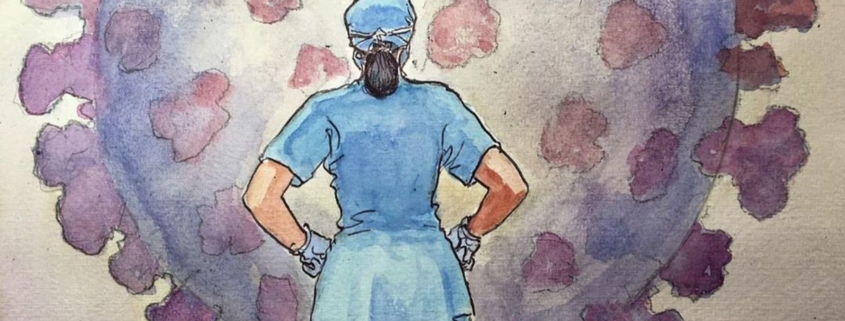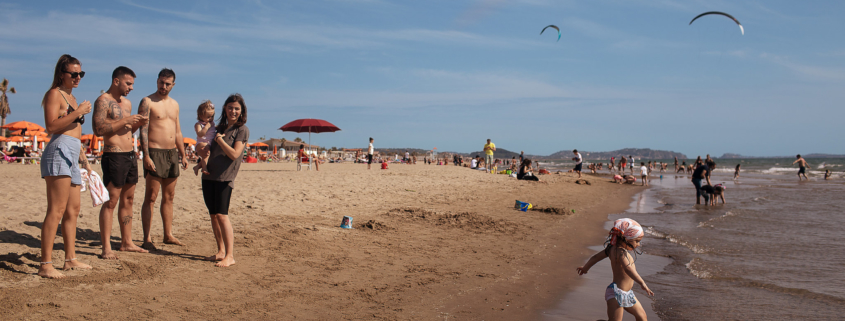Many have seized the chance to return to the sands, soak up the sun and take a swim. But social distancing? Maybe, maybe not.
GIUGLIANO IN CAMPANIA, Italy – The lifeguard turned his back to the water and looked for danger on the sand. All around him at the beach club west of Naples, children on their stomachs dug moats while adults reclined on beach chairs, catching rays, eating stuffed shells and reconnecting with friends on the first Sunday back at the beach after a monthslong lockdown. Some maintained the new social-distancing restrictions. Some did not.
As the temperatures rise, sun-starved Europeans are desperate to get to the beach and tourism-starved Mediterranean countries are desperate to have them. In Greece, the government is trying to negotiate an “air bridge” from Britain, with promises of 40 bathers per 1,000 square meters and disinfected chairs. The Spanish are trying to convince Germany to send tourists their way, while Baltic Sea resorts, which had a far less severe epidemic than Spain, are trying to poach them.
But it is Italy, which endured one of Europe’s worst outbreaks, that is most counting on the economically restorative powers of its beaches and seas. Tourism accounts for 13 percent of Italy’s gross domestic product, and 40 percent of that is from beach activity. Officials and beach club owners have expressed hope that foreign tourists will spend time and money in their country when the borders reopen in June. But in the meantime, it is the Italians who must pick up the sunbathing slack.
On May 18, the national government, citing the dipping curve ofinfections, allowed Italian regions to reopen beach clubs. Different regions have reacted with varying degrees of caution. Tuscany allowed them to reopen on May 18, Campania on May 23, Lazio on May 29, and Sicily on June 6. But the national government also said that any sharp rise in new infections would prompt another lockdown, and the mayor of one small town in the southern region of Puglia closed the beaches this week after seeing an “invasion” of sunbathers, many, he said, “wearing their masks as necklaces.” Italians have been waiting to get back to the beach for months and have obsessed over their summer prospects essentially since the lockdown began in March.
In the Italian news media, detailed graphics and videos regularly illustrated the possible restrictions and proposed bathing innovations.
There were the rows of plexiglass cubicles – each holding an umbrella and recliners, or entry gates that sprayed disinfectant on bathers like cars entering a carwash, or a village of eco-friendly bamboo and fabric beach huts. (“We were in Mongolia for many years,” the architect explained.) None caught on.
Salvatore Trinchillo, the third-generation owner of the Lido Varca d’Oro club in Giugliano in Campania, said that the plexiglass cubes were only ever promoted by “a guy who makes plexiglass” and would “turn sunbathers into rotisserie chickens.” Instead, Mr. Trinchillo, who is also the vice president of Italy’s union of beach club presidents, opted for more traditional arrangements, with more room between the umbrellas and lounge chairs. The people around the pasta and coffee bars wore masks and those who wanted to eat in the outdoor restaurant had their foreheads scanned with a thermometer.
Campania’s latest measures were adopted once again when Vincenzo De Luca, the governor, perhaps best known during the coronavirus outbreak for threatening to take a “blowtorch” to illegal gatherings and for calling his citizens “doubly imbeciles” for bothering to wear masks but then letting them hang around their necks, decided that infections had gone down enough for beach clubs to open. The region also allowed bathers to remove their masks on the beach, as long as they observed social-distancing measures.
One client described herself as a year-round beach enthusiast.
And she said that after months of going stir crazy in her nearby home, the opening of the beaches and the ability to stare out at the hazy island of Ischia was “a mercy from God.” “We all got fat!” she added, referring to the “quarantine kilos” she said she had put on. Mr. Trinchillo agreed that “everyone is a little chubbier” and said through a mask that he was delighted to finally see people back on the beach. To observe social-distancing measures, he had to reduce his beach-chair capacity to 1,200 from 2,000. He also created broader corridors for people to pass through and spaced his chairs out even more than required by the region.
Yet there remained a dense and vibrant forest of orange umbrellas.
As he took it in, Mr. Trinchillo said more exclusive and expensive beach clubs in the region, such as on the Amalfi Coast or on the island of Capri, spots known for their crystalline waters, coves and rocky cliffs, “were now jealous of us” because they lacked the space for proper distancing and could not open. “Life is bizarre,” he said. At the Lido Varca d’Oro, people didn’t seem so few or far away. A toddler with goggles and a face mask the colors of the Italian flag scampered into the sea, next to a circle of adults with their bare faces pointed up at the sun.
Since Italy eased its lockdown, the country’s mayors have wrestled with crowds drawn to newly reopened bars, but also to its boardwalks and beaches. At the beach on Sunday, policing duties often fell to the club’s staff “I ask people if they are relatives or friends,” said one of the club employees. He said that people were generally behaving then he turned and excused himself. “See over there? I have to go and remind them that assemblies are banned.”
He walked toward the part of the beach where two cousins from Naples were spending the afternoon sun bathing with small children playing in the sand.
“Feel this air, smell the sea, it’s safer out here.. It’s freedom”
Original Text Source: New York Times International Edition
Published: May 27, 2020
Full reportage by: Jason Horowitz
Source © My Country magazine – Naples, Italy (JULY 2020 PAGE 4)
